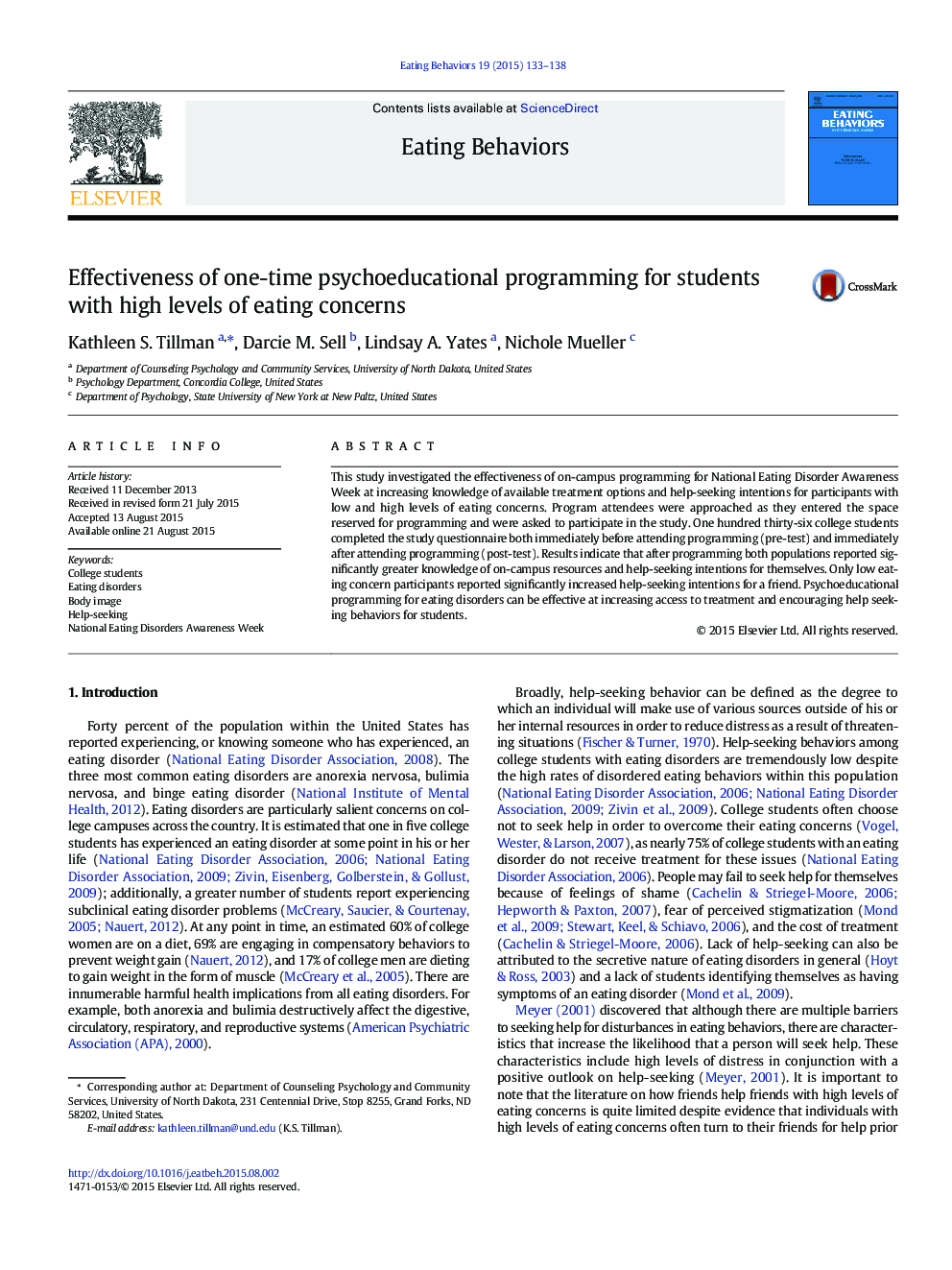| Article ID | Journal | Published Year | Pages | File Type |
|---|---|---|---|---|
| 906302 | Eating Behaviors | 2015 | 6 Pages |
•Programming for National Eating Disorders Awareness Week (NEDA) was investigated.•Greater knowledge of on-campus resources was found for all students.•Greater help-seeking intentions for self were found for all students.•Students with low levels of eating concerns reported greater help-seeking intentions for a friend.•NEDA programming can increase access to treatment and help-seeking intentions.
This study investigated the effectiveness of on-campus programming for National Eating Disorder Awareness Week at increasing knowledge of available treatment options and help-seeking intentions for participants with low and high levels of eating concerns. Program attendees were approached as they entered the space reserved for programming and were asked to participate in the study. One hundred thirty-six college students completed the study questionnaire both immediately before attending programming (pre-test) and immediately after attending programming (post-test). Results indicate that after programming both populations reported significantly greater knowledge of on-campus resources and help-seeking intentions for themselves. Only low eating concern participants reported significantly increased help-seeking intentions for a friend. Psychoeducational programming for eating disorders can be effective at increasing access to treatment and encouraging help seeking behaviors for students.
